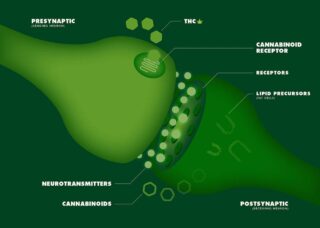CBD for Anxiety: A review of the research over the past decade

Anxiety is something that affects millions of people around the world. Whether it’s due to work stress, financial troubles, or personal issues, anxiety can be debilitating and frustrating. Over the years, people have tried various methods to alleviate anxiety symptoms, ranging from medication to therapy to lifestyle changes. However, in recent years, a new option has emerged: CBD.
CBD (short for cannabidiol) is a compound found in cannabis plants. Unlike THC (tetrahydrocannabinol), another well-known compound found in cannabis, CBD does not have psychoactive effects, meaning it won’t make you feel “high.” Instead, CBD has been shown to have potential benefits for a variety of health conditions, including anxiety.
In this blog post, we’ll review the research conducted over the past decade on CBD and its effectiveness in treating anxiety. Whether you’re dealing with anxiety yourself or you know someone who is, we hope this post will be informative and helpful.
What is anxiety, and how is it currently treated?
Anxiety is a feeling of worry, nervousness, or unease about something with an uncertain outcome. It’s a normal emotion that everyone experiences from time to time, but when it becomes chronic or interferes with daily life, it can be a problem. Anxiety disorders are some of the most common mental health disorders, affecting approximately 40 million adults in the United States alone.
Currently, anxiety is usually treated with medication, therapy, or a combination of both. Medications like benzodiazepines (Xanax, Valium) and SSRIs (Prozac, Zoloft) can help reduce anxiety symptoms, but they also come with potential side effects and risks. Therapy, particularly cognitive-behavioral therapy (CBT), can help people develop coping strategies and improve their overall mental health.

What does the research say about CBD and anxiety?
Over the past decade, numerous studies have been conducted on the potential benefits of CBD for anxiety. Most of these studies have been done on animals or small human populations, so more research is needed to fully understand CBD’s effects. However, there is evidence to suggest that CBD may be helpful for some people with anxiety disorders.
A 2011 study published in Neuropsychopharmacology found that CBD could reduce symptoms of social anxiety disorder (SAD). Participants who were given CBD before a simulated public speaking test experienced less anxiety and discomfort than those who were given a placebo.
Another study, published in 2019 in The Permanente Journal, looked at the use of CBD for anxiety and sleep. The study involved 72 adults, 57 of whom reported anxiety as their primary concern. Participants were given CBD capsules daily for one month, and the majority reported lower anxiety levels as well as improved sleep quality.
How does CBD work in the body?
CBD interacts with the body’s endocannabinoid system (ECS), which is a complex network of receptors and neurotransmitters that helps regulate a variety of bodily functions, including mood, appetite, and sleep. The ECS is responsible for maintaining homeostasis, or balance, in the body.
CBD interacts with two specific receptors in the ECS: CB1 and CB2. CB1 receptors are primarily found in the brain and central nervous system, while CB2 receptors are found in the peripheral nervous system and immune system. CBD doesn’t bind directly to these receptors like THC does, but it can influence their activity and help modulate the body’s response to anxiety and stress.
Is CBD safe and legal?
CBD is generally considered safe, although it can cause side effects like fatigue, dry mouth, and changes in appetite. It’s also important to note that CBD can interact with certain medications, so it’s always a good idea to talk to a healthcare professional before trying CBD.
Accessing safe and standardized CBD products in Canada involves understanding how to read and interpret a cannabis product label. The standardized cannabis symbol, product brand name, and THC content are essential elements to look for on the package. In Canada, CBD can only be purchased through a licensed retailer, and the Cannabis Act provides a legal framework for controlling the production, distribution, sale, and possession of cannabis. If you’re interested in trying a CBD product, it’s recommended to seek one through a dispensary, an establishment legally licensed to sell cannabis products
In the United States, CBD is legal at the federal level as long as it meets certain criteria. The CBD must be derived from industrial hemp, which is defined as cannabis with less than 0.3% THC by weight. Additionally, states may have their own laws regarding the sale and use of CBD products, so it’s important to research the laws in your area.
Conclusion:
CBD has emerged as a potential alternative or complementary treatment option for anxiety, but more research is needed to fully understand its effects. If you’re interested in trying CBD for anxiety, talk to an experienced healthcare professional like myself, in order to ensure it’s safe for you and won’t interact with any medications you’re currently taking. Remember that CBD is only one tool in a larger arsenal of treatment options for anxiety, and that a holistic approach is often the most effective. By taking care of your body and mind and seeking professional help when necessary, you can manage your anxiety and live a fulfilling life.
For more information on CBD check out these articles:
Treating Brain Injury with CBD
How to treat epilepsy naturally: CBD as first line therapy
Why CBD is my new favorite medicine




